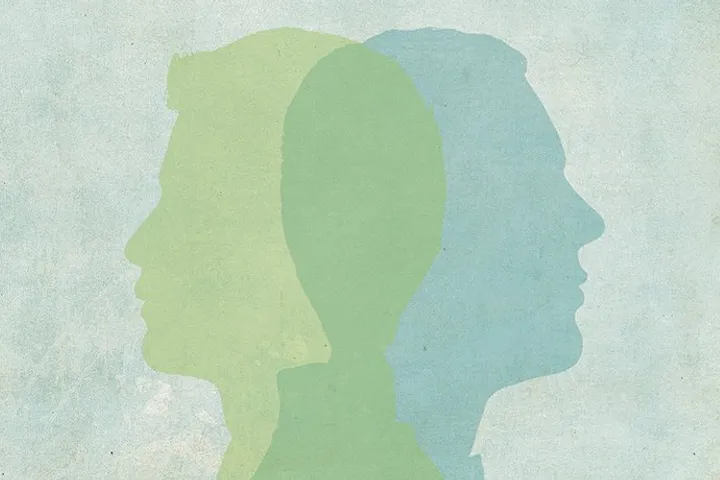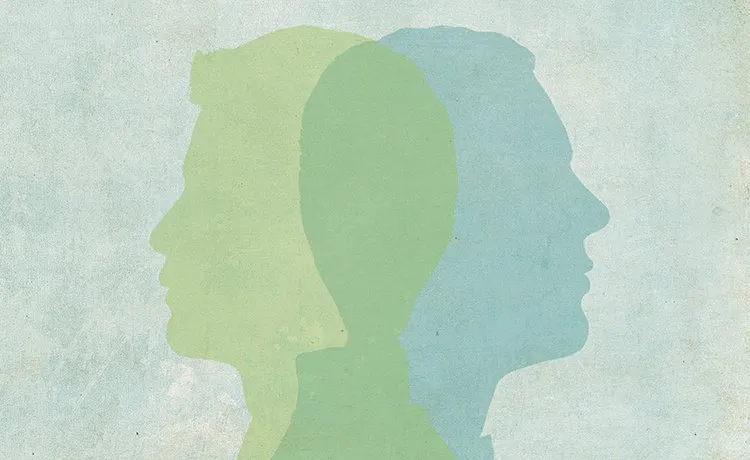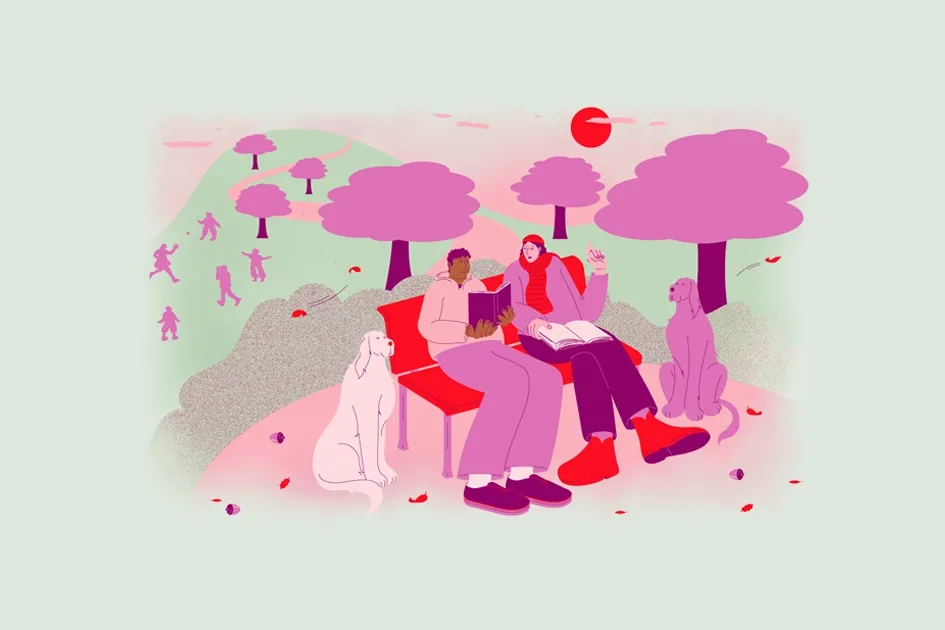Four sets of feet sit rooted to the ground—mine, Mom’s, Dad’s, and the medical staff member delivering the news. It's funny how little things vie for our attention in such moments. The swirl of blues and greens in the hospital hallway carpet, the shrill of a ringing phone, and the curve of the navy walking shoes my mom wears as she sits next to me.
 Illustration by Jeff Gregory
Illustration by Jeff Gregory
This wasn’t the first time we received the news that cancer ravaged my mother’s body. More than six years passed since we first heard the dreaded C-word. After 18 months of treatment, we thought the beast was subdued. But instead, we learned of its spread. More treatment. More suffering. More pain.
The recent scan reveals the beast brought a friend, as a second cancer roars inside her. Eyes down, I gaze at each of our feet, curious about the adventures they’ve been on over the years. I’m grateful Mom’s are here, and I whisper a prayer they will continue to hold her steady. I worry about the journey ahead and drift into a private monologue while comparing the size and shape of our shoes. I don’t want to do this again. She’s been through enough. They’ve had enough. Jesus, be near.
Before I know it, words from a story I read to my young girls years ago pop rhythmically through my mind: You can’t go over it. You can’t go under it. You have to go through it.
“We’re going on a bear hunt,” I remember reading, sitting cross-legged and pretending to walk as we patted our hands on our knees. The story told of a family who traipsed through tall grass, slogged through a river, trudged through mud, and stumbled through a dark forest, searching for a bear. With each obstacle, they chanted, “Uh, oh! We can’t go over it. We can’t go under it. Oh no! We have to go through it!” And then they’d run or jump or swim or slog, sometimes one right after another and often very quickly!
In the cold, cramped room, I tenderly compare this memory with one from a later chapter of my life: the day my daughter died from injuries in a house fire. Then, too, a doctor sat with me in a hospital room as I tumbled headfirst into the darkest forest of grief, hearing the news that my daughter did not survive. I wanted nothing more than to skip the expanse of grief that stretched before me, but there was no way around sorrow.
You can’t go over it; you have to go through it.
About a year before my daughter died, a church friend lost her son to brain cancer. I watched her endure the days, weeks, and months that followed his death. Even though she shared her worries and fears, she also stood with her arms lifted high during worship. I wondered how I’d respond if my child died. Would I survive, let alone worship as she did? Then, like other moms, I prayed that God would protect me from ever having to know the answer—that the what-ifs I pondered wouldn’t become reality.
The day my house burned and my daughter took her final breath brought Jesus’ words to life. He warned that there would be trials and sorrows in this world, and though I couldn’t see my way through, Jesus declared that the story doesn’t end with death. He encouraged His disciples—and us—with His next words: that we can take courage for He overcame the world (John 16:33).
Jesus spoke of victory to His disciples, but at first, all I saw was destruction; I couldn’t wish away the sorrow even if I tried. I woke each morning without my daughter snuggled near, without the echo of her giggles bouncing through our house.
Yet, even in the face of death, I longed for hope; I stumbled toward it. During dark days, I not only learned about God’s goodness, but I began experiencing it through His presence. He sat with me in the darkness (Mic. 7:8). He kept track of my sorrows and held my tears (Ps. 56:8). I learned how these heart-breaking experiences I want to bypass actually invite me to see God differently, to witness His mercy. Those days of slogging through the waters of loss revealed the depth of His character and love for me (Isa. 43:2). Maybe that’s what Elisabeth Elliot meant when she penned, “I’m convinced that there is nothing that can happen to me in this life that is not precisely designed by a sovereign Lord to give me the opportunity to learn to know Him.”
I still don’t want the trials to happen, and I don’t fully know how all things work together for our good (Rom. 8:28), but they do. So here we sit in a semicircle together, as we discuss my mom’s options. I knew others who endured cancer, treatment, and caregiving and remember their stories, but nothing prepared me to watch my mom suffer.
Even though I experienced the sting of death and grief nearly two decades ago, this journey with my mom is different. Now I’m the daughter, not the mother. We have time to prepare, process, and grieve together. There are days I almost forget she’s sick—until I hear about the increased pain and increased dosage and think about the looming discussion for hospice. But because of Jesus, we talk about the joy to come. As Mom moves closer, we slow dance between anticipating death and embracing each moment she’s beside us. I consider how much time I spent growing up, trying to become independent from my parents; now, I only want to sit with Mom and listen to her stories.
We can’t go over it, we can’t go under it, we have to go through it. But we have help. Jesus promises to be with us through the entirety of grief and to pray for us when we lose our words (Rom. 8:26). Most importantly, knowing Jesus means we can count on a day when death and sickness and sorrow will be no more (Rev. 21:4). Until then, we will traipse through tall grass, slog through the river, trudge through mud, and even stumble through a dark forest. O Lord, may we see clear and tender evidence of Your goodness while we’re on the journey.





